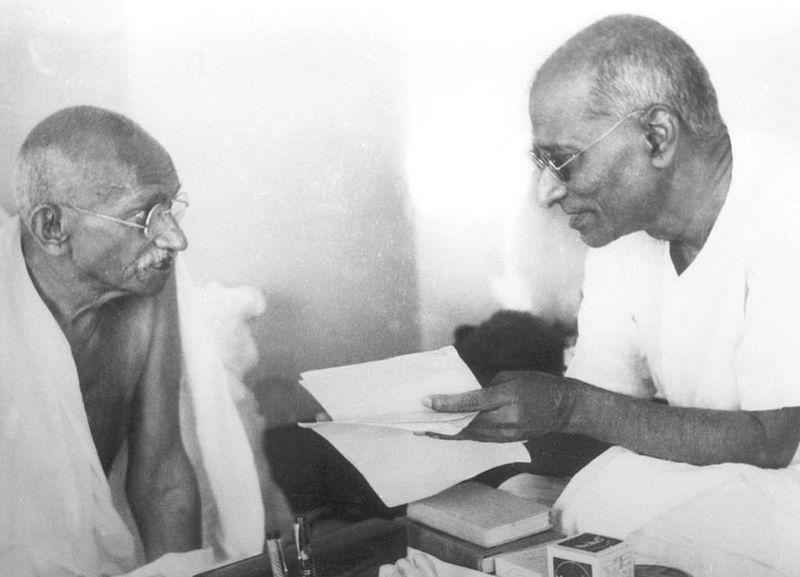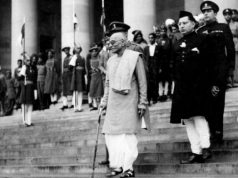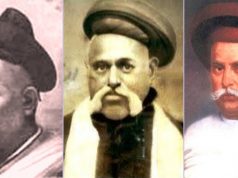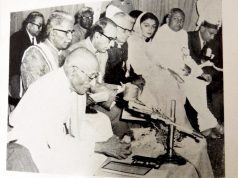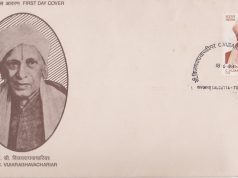Written in 1965, the present piece contains Rajaji’s reflections on liberty, and whether we had come to take our freedom for granted after securing independence in 1947. This piece has been taken from the Swatantra Souvenir: a collection of Rajaji’s speeches and writings.
Shortly after the Philadelphia Convention, the story goes that Benjamin Franklin was asked by a lady about the nature of the Constitution hatched at the convention, to which he replied “we have given you a republic, madam, if you can keep it”.
In 1947 we were emancipated from British sovereignty. We were made free. But in course of time the Government into whose hands we placed ourselves has, in the name of socialism, taken away all the economic freedom that the citizens enjoyed for thousands of years, and the people have shown little inclination to resist this usurpation, the will to be free not being exercised.
Two elements are relevant in this connection. One is the basic human desire to be free or its obverse, the dislike to be ruled by any external authority. The other element is the economic rationality of socialism, apart from the question of the citizen’s liberty. Even when the second point is thoroughly discussed and accepted, viz., the irrationality of disregarding natural laws and seeking to increase production and furthering prosperity through bureaucratic management, replacing private ownership and private management, the economic conviction does not take shape in action, where the will to be free is not strong enough but has been weakened by long sufferance of foreign rule. People appear to be quite willing to suffer bondage as they did before 1947.
Freedom rests not on constitutions but on the will to be free. Freedom endures only in the measure, and only so long as this will last. Liberty lies in the hearts of men and women. When it is not there burning and alive, no constitution, no law, no court can save it, as an American judge put it.
Often have I felt surprised when at by-elections the Congress Party won inspite of widespread dissatisfaction with Congress rule and disapproval of Congress policies shown beyond doubt at vastly attended public meetings. I have asked myself the question, why do these people get into the Congress lorries and buses and jeeps and go and vote for shackles? Is it to be attributed to bribery? Or terror of pains and penalties likely to issue from disobedience? Surely, I have said to myself, this cannot be. The puzzle can be resolved by this absence of the will to be free. Gandhiji used to call it slave mentality. He fought hard to eliminate it. But the reaction was just anti-Britishism, not, as we now regretfully realize, the positive love of freedom and a readiness to sacrifice for retaining that precious possession against anyone interfering with it. ‘Our’ own Government can be as great an enemy of freedom as any foreign usurper.
The problem is, therefore, how to revive this will to be free and to recover it from the terrible entanglements of the State-socialist economy. It was not so entangled when the British Parliament governed us.
Controlled production, controlled prices and other similar controls mean in the ultimate analysis controlling of persons. Under a controlled economy, it is persons, not things, who are told by some persons who are collectively called government what they must or must not do. It is this that goes contrary to respect for human personality, gradually robs the victims of the will to be free, and develops in the government a hunger for owning slaves. Happiness, even mere physical happiness, requires not only food, clothing and shelter; but also a sense of freedom. A shortage or total deprivation of any of these essentials makes men and women unhappy. Whether the rope that strangles human beings is made in England or elsewhere, or is of indigenous make, makes no difference.
Men and women can by continued force be got to accept unhappiness as a normal condition either by society or governments. And this can be carried up to a point when protests and resistance disappear, and a state of dependence is even preferred by them to the responsibility which goes with freedom. One may wonder whether the electorate in India has come to that stage; or whether we can save ourselves from that sub-human condition. The Swatantra Party hopes that this is possible. It has been truly said that every significant movement in history has been led by one or just a few individuals with a small group of energetic supporters. We saw it, not so long ago, in Gandhi’s Swaraj movement in 1920, which came like an accident on top of the Khilafat movement. Liberation from the present permit-licence-raj will come, too, in that way.
July 10, 1965
You can access the original piece here. Visit indianliberals.in for more works by Indian Liberals dating back to the 19th Century.
Post Disclaimer
The opinions expressed in this essay are those of the authors. They do not purport to reflect the opinions or views of CCS.

